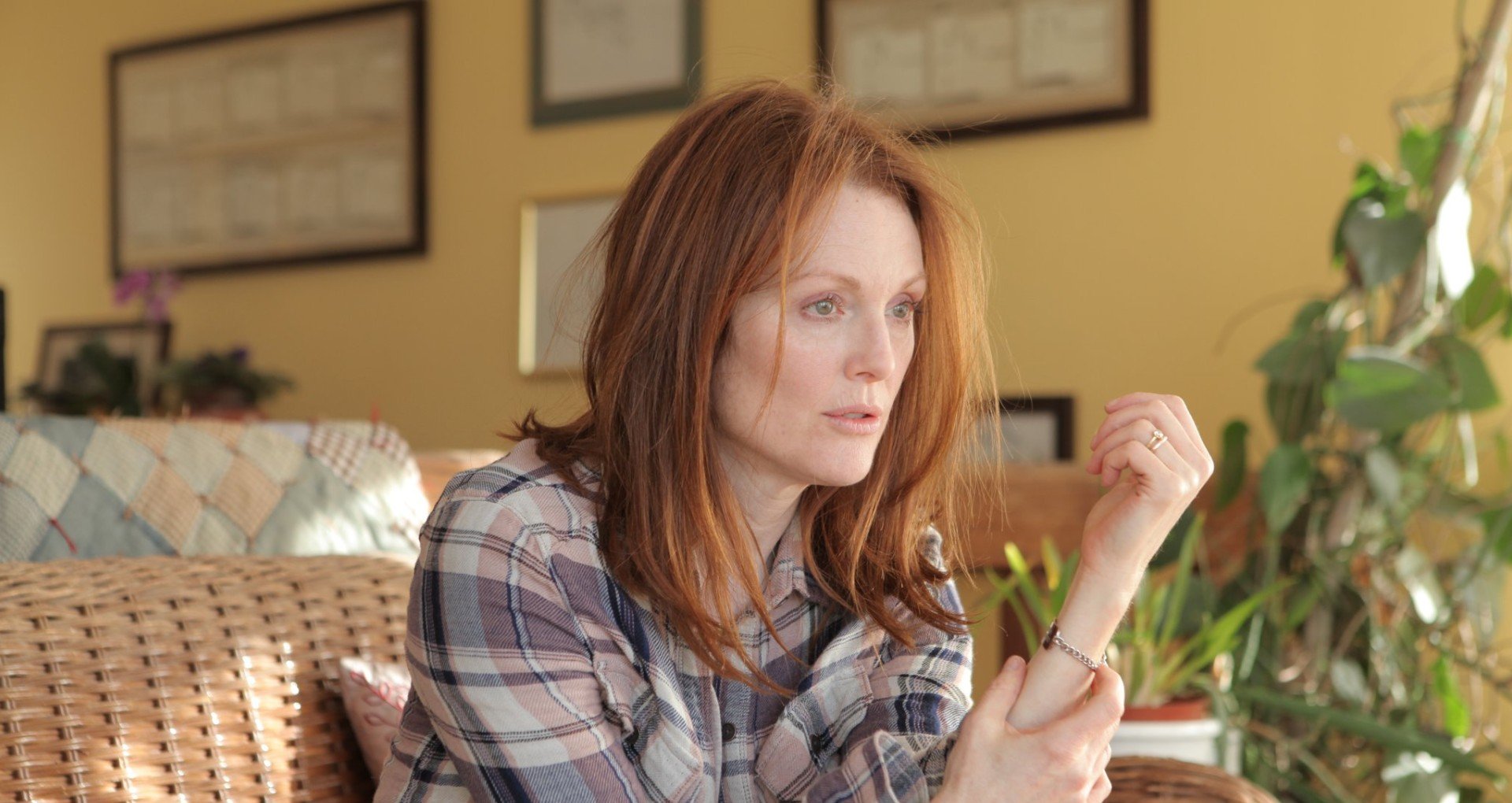GamesRadar+ Verdict
Moore gives a controlled portrait of emotional implosion, bringing quietly heartbreaking nuances to a calm, considered treatment of a life-shattering situation.
Why you can trust GamesRadar+
Less is Moore.
When an actor is overdue an Oscar, an eventual win is often viewed as delayed reward for earlier near-misses. Solid as the ‘snowball’ theory is, Julianne Moore’s Oscar-nominated latest deserves proper standalone respect.
The actress’ study of a 50-year-old linguistics professor facing early onset Alzheimer’s echoes many of her previous roles, four of which were Oscar-nominated (more should have been). But Moore isn’t resting on her laurels: she’s reminding us just how forceful and flexible her powers of restraint can be.
The clearest precedent is Todd Haynes’ Safe, a haunting art-riff on disease-of-the-week films in which Moore’s LA ‘homemaker’ Carol White becomes ill, then virtually dissolves before our eyes. Her Professor Alice Howland is no less hot on words than Carol was on picking sofas. Most of us use our smartphones to browse pictures of funny cats; Alice uses hers to play brainy word games. So when she forgets the word ‘lexicon’ in a lecture, you know she’s in trouble: it’s like Tarantino forgetting the f-word.

Bucking weepie clichés, writer/director team Richard Glatzer and Wash Westmoreland (The Last Of Robin Hood) draw out the horrors of Alice’s situation with sensitive conviction. Part of that’s down to Lisa Genova’s informed source novel; part of it’s down to Glatzer’s own experiences with neurodegenerative disease.
Either way, melodramatic excess is rejected: in its place, the duo cannily imply Alice’s deterioration by shooting her from behind or reflected in windows, ghostly and self-detached.
The rest is down to Moore, who channels Alice’s self-dissolution into a quiet tussle between surface poise and inner panic. Moore played a toilet crisis for black comedy in Cronenberg’s Maps To The Stars. When Alice forgets where her home loo is, she charges the clash between her bursting bladder and weakening grip on life with agonised truthfulness.
Alice’s plummet is pre-ordained, so it’s kudos to Moore that she magnetises our attention anyway – and without resorting to attention-seeking tics. It’s only when Alice becomes really ill and watches filmed advice she recorded for herself from better days on her MacBook that we realise just how far she owns her character’s incremental decline.
The contrast is harrowing: if Moore doesn’t own a statue for it, consider the Academy lost in blunder-land.
Kevin Harley is a freelance journalist with bylines at Total Film, Radio Times, The List, and others, specializing in film and music coverage. He can most commonly be found writing movie reviews and previews at GamesRadar+.



